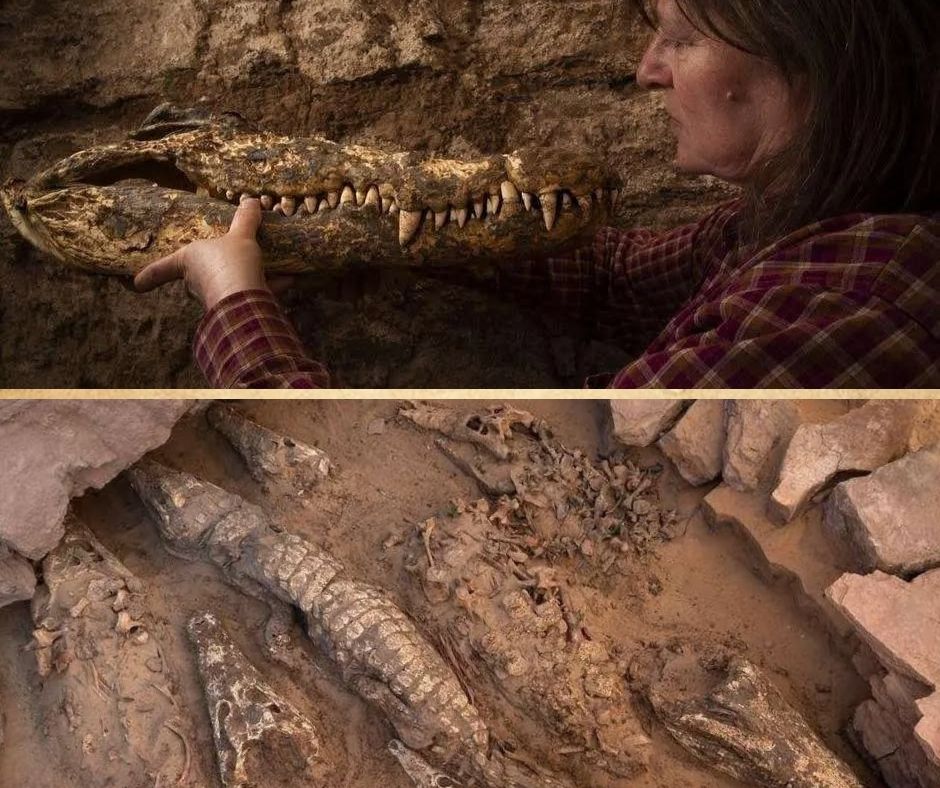Incredible discovery: 10 crocodile mummies were found preserved in an ancient Egyptian tomb, shedding light on the rituals and beliefs of a fascinating civilization.

In the Qubbet el-Hawa necropolis near Aswan, Egypt, archaeologists have uncovered an exceptional find: a tomb containing ten well-preserved crocodile mummies, which has astonished researchers due to the area’s historical lack of worship for Sobek, the crocodile deity. Discovered in 2019, the crocodile remains include five skulls and partial skeletons measuring between 1.8 and 3.5 meters. The tomb, dating back to between 2200 and 1800 BCE, is significant as it is the first of its kind in the necropolis, indicating a previously unknown local belief system.
The discovery was part of an ongoing excavation led by Professor Alejandro Jiménez-Serrano from the University of Jaén, which has been active in the site for over a decade. The mummies were found layered over graves containing human remains, dating back 1,700 years earlier. Notably, the preservation method differs from typical practices, lacking resin and signs of evisceration, suggesting a unique ritualistic approach. One crocodile displayed evidence of being tied, indicating a possible offering process. This find not only enriches the understanding of ancient burial customs but also highlights the sacredness of the necropolis as a site for divine connection.

